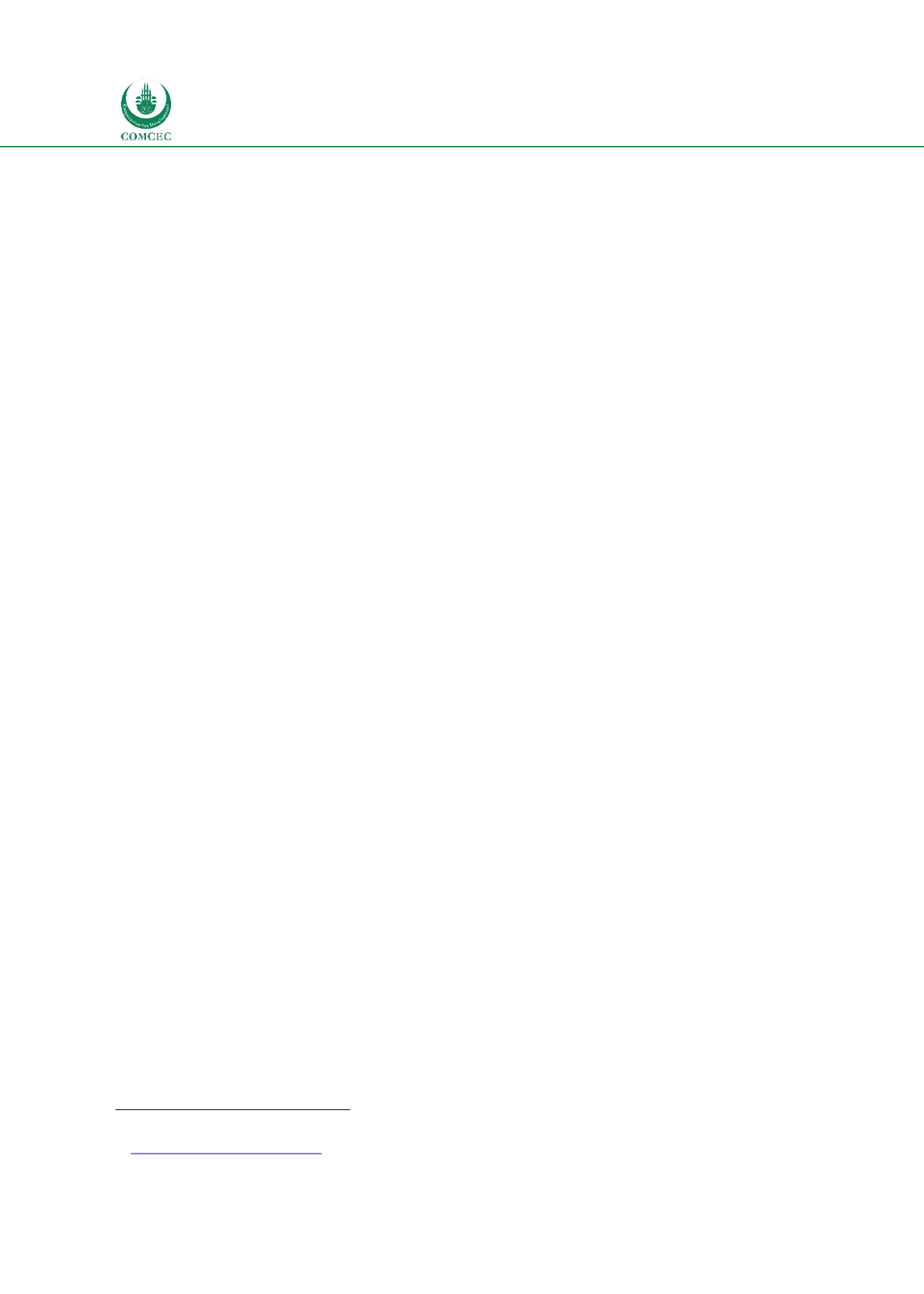

National and Global Islamic Financial Architecture:
Problems and Possible Solutions for the OIC Member Countries
222
7.3.2. International Level Infrastructure Institutions
While the role of different existing infrastructural bodies has been identified above, this section
discusses the need for newer institutions that may be necessary to support the sound growth
of Islamic finance in the future. To have a perspective of the gaps in the global infrastructural
institutions for Islamic finance, Table 7.15 identifies the different initiatives that support the
conventional financial sector and then presents the corresponding institutions that need to be
present to strengthen the international infrastructure for Islamic finance.
As the Islamic financial sector is growing in many countries and will become systematically
important in the future, there may be a need for policies that will reduce systemic risks and
bring about stability in OIC MCs. One key policy issue relates to the implementation of
international financial standards developed by different global standard setting bodies. Some
organizations such as World Bank and IMF that encourage the adoption of international
standards under the Financial Sector Assessment Program (FSAP) and Reports on Standards
and Codes (ROSC) for the conventional financial sector. More recently, the FSB was established
after the GFC in 2009 to bring together policy makers and regulators from different countries
to promote ‘financial stability by coordinating the development of regulatory, supervisory and
other financial sector policies’.
69
FSB assesses the vulnerabilities that can lead to global
systemic risk, develops policy responses to address the weaknesses, and oversees and
monitors the implementation of policy recommendations. Unlike these organizations that
encourage the adoption of international standards for the conventional financial sector, no
such initiatives are taken for Islamic finance.
Given that different international standard setting bodies related to Islamic finance are
operating without coordination, an organization similar to FSB may be a suitable response to
address the infrastructure related issues for the Islamic financial sector. The role of the
Stability Board for Islamic Finance (SBIF) would be to enhance the global stability and
development of a sound Islamic financial sector by coming up with a framework of establishing
Islamic Financial Sector Assessment Program (IFSAP) and relevant Standards and Codes
applicable to Islamic financial sector. SBIF will coordinate not only the implementation of
existing standards of IFSB and AAOIFI but also contribute to filling the gaps in other
architectural elements such as the legal and Shariah governance frameworks for the Islamic
financial sector globally. As the body would engage key policy holders from different countries,
the suggested SBIF can either be initiated by OIC under the realm of COMCEC or by D-8
countries.
For countries in which the Islamic financial industry forms a significant part of the overall
financial sector (or is wholly Islamic such as in Sudan), there may be a need to have
international Shariah compliant LOLR facilities. However, at present there are no such facilities
available. While the Islamic Development Bank exists as an alternative to Shariah compliant
developmental financial institutions, no Shariah compliant organization similar to IMF exist
that can provide liquidity in times of need. As the Islamic financial industry grows, there may
be a need to establish an entity similar to IMF that can provide Shariah compliant liquidity in
times of need. To start with, different international Islamic infrastructure institutions related
to Islamic financial industry and liquidity management (IDB, IFSB, IIFM, IILM and LMC) can
6
9 http://www.fsb.org/what-we-do/















